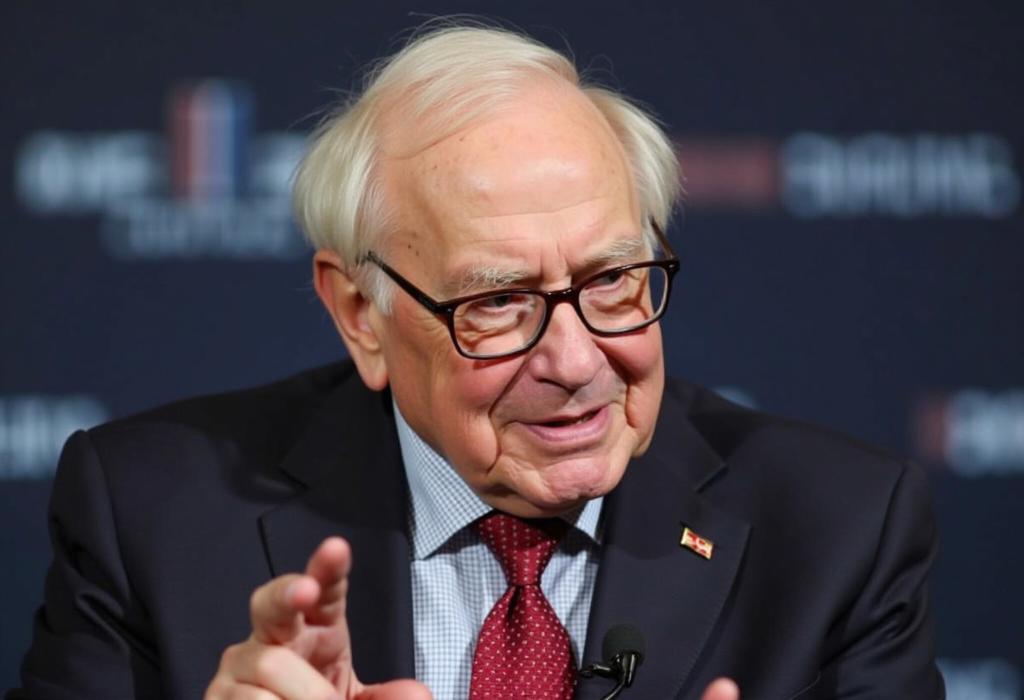As the stock market experiences its second consecutive day of significant losses following President Donald Trump's announcement of reciprocal tariffs, investors are grappling with uncertainty and volatility. The major U.S. indexes, including the Dow, plummeted by more than 3% in mid-morning trading, leading to a substantial loss in market value upwards of $5 trillion. European stocks mirrored this downturn, with declines exceeding 4%. In the midst of this chaos, Berkshire Hathaway's Chairman and CEO Warren Buffett offers a contrarian view. Rather than succumbing to panic, he emphasizes the potential for opportunity amidst turmoil, drawing on historical precedents where downturns produced favorable buying conditions. Buffett references his own strategies from crises like the Great Recession, urging investors to remain calm and assertive when fear dominates the market mindset. However, it is notable that even Buffett has been cautious in his buying behavior, maintaining a significant cash reserve that has tripled in the past two years, suggesting that he is strategic about when to enter the market. Analysts contend that should the current market decline persist, it could eventually present compelling opportunities for a shrewd investor like Buffett, who has previously demonstrated a knack for capitalizing on crises. Still, the market's turbulence raises questions about the broader economic impacts of Trump's tariff policies, especially concerns regarding the potential onset of a trade war and its implications for inflation and recession. Historically, significant increases in tariffs have led to market turmoil, as seen during the Smoot-Hawley tariffs that contributed to the Great Depression. Investors are now left to weigh the possibility that if Buffett acts quickly, it might suggest a lack of long-term damage from the tariffs, whereas if he refrains, it could indicate a deeper concern for economic stability. In the grand scheme of investing, this moment serves as an illustration of Buffett's timeless advice: to remain disciplined, avoid panic selling, and look for undervalued opportunities in a down market. The sentiment across social media captures this ethos, as users depict Buffett as the poised investor amidst the market chaos, fostering a discussion on patience and strategic buying. Regardless, the current climate is a reminder of the market's propensity to move based on human emotion, and the importance of sticking to long-term investment plans, especially during periods of heightened volatility.
AD
AD
AD
AD
Bias Analysis
Bias Score:
30/100
Neutral
Biased
This news has been analyzed from 7 different sources.
Bias Assessment: The article leans towards providing an account of current market dynamics while foregrounding Warren Buffett's investment philosophy. It presents a mostly balanced view; however, it conveys a moderate degree of optimism due to Buffett's historical success and the potential for opportunity in downturns. The emphasis on Buffett's views may skew the perception towards caution being the ideal response, potentially downplaying the severity of the economic implications stemming from Trump's tariffs.
Key Questions About This Article




